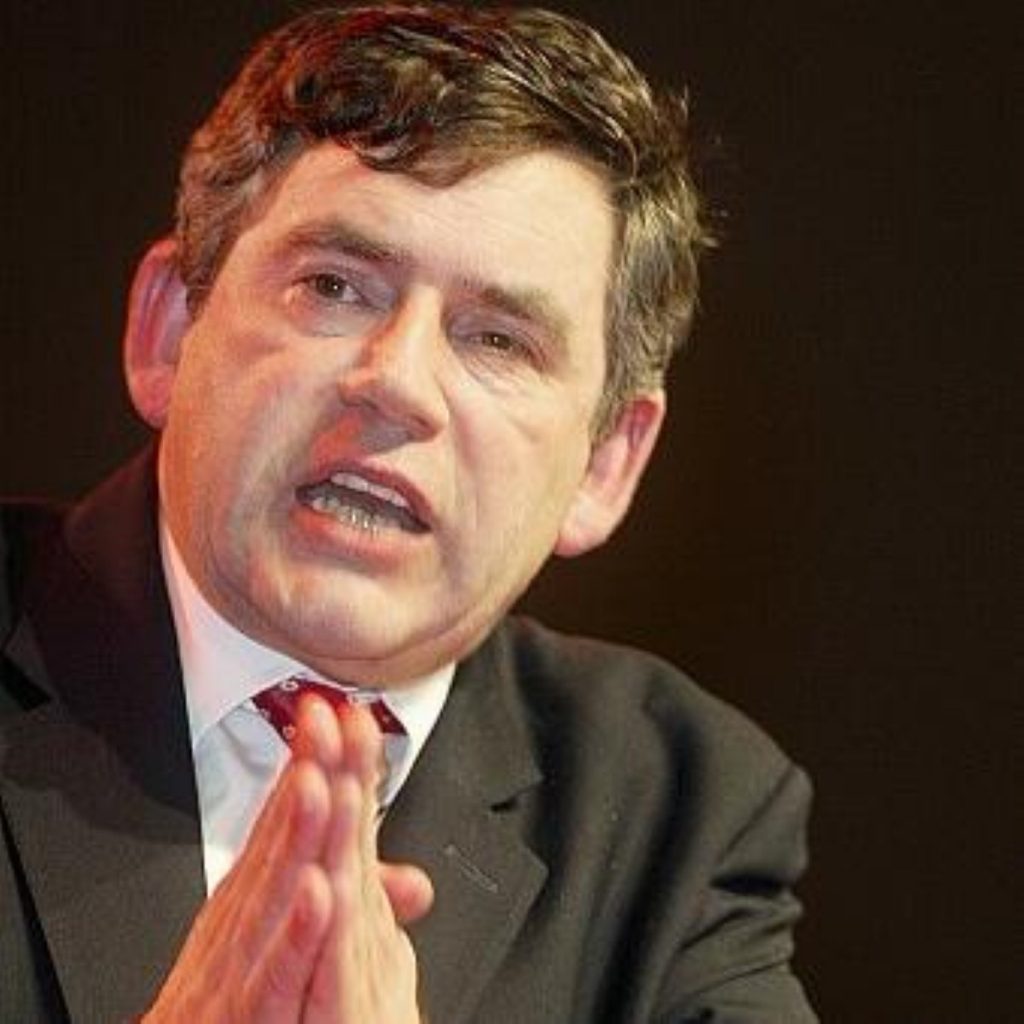PM promises to write ‘next chapter of liberty’
Gordon Brown today moved to stress his liberal credentials as he promised to “write a new chapter” in Britain’s liberal tradition.
In a speech at University of Westminster, the prime minister praised the central role of liberty in British politics, but hinted he would continue to take a more authoritarian stance in the face of terrorist threats.
Mr Brown said: “To claim that we should ignore the claims of liberty when faced with the needs of security would be to embark down an authoritarian path that I believe would be unacceptable to the British people.”
But the prime minister insisted individual freedoms could not be the only priority for government, arguing the test of government is how it responds to hard choices.


Mr Brown said: “By insisting that liberty is and remains at the centre of our constitution, we rightly raise the bar we have to meet when it comes to measures to protect the security of individuals and communities against the terrorist threat.”
He refused to rule out attempts to increase the length of time terror suspects can be held without charge, repeating police concerns the current 28-day limit could one day be insufficient.
But he attempted to appease critics by saying any extension would be subject to scrutiny.
Mr Brown said: “There will be – and must be – greater protections for the individual – both greater legal or judicial safeguards on executive decisions and more intensive scrutiny of them by parliament.”
The government’s attempts to extend the limit for detention without trial have been met with criticism by opposition politicians and civil liberties groups.
Recently, the home secretary Jacqui Smith admitted no case has yet collapsed because of insufficient time for questioning. She told MPs the government was responding to hypothetical warnings and requests for more power from the police.
Mr Brown’s record on civil liberties has also been attacked over his commitment to controversial identity cards.
Today, he moved to stress his commitment to individual freedoms, admitting public dialogue in recent years had threatened to “undervalue the importance of liberty.”
Mr Brown said: “I want to explore how together we can write a new chapter in our country’s story of liberty.”
The prime minister confirmed plans for a British Bill of Rights, which he said would “entrench and enhance” individual freedoms.
The bill will also set out the responsibilities “that flow from British citizenships”.
Mr Brown said: “The debate about a Bill of Rights and Duties will be of fundamental importance to our liberties and to our constitutional settlement and opens a new chapter in the British story of liberty.
“Indeed the character of our country will be defined by how we write the next chapter of British liberty – by whether we do so responsibly and in a way that respects and builds on our traditions, and progressively adds to and enlarges rather then reduces the sphere of freedom.”
The civil rights group Liberty welcomed the change in tone from the prime minister, but criticised his continued commitment to ID cards and extension without trial.
The Liberal Democrats questioned Mr Brown’s commitment to liberalism, arguing the Labour government had been one of the main threats to civil liberties over the past decade.
Justice spokesman David Heath said the “increasingly overbearing government” had transformed Britain into a “surveillance state”.
He said: “If Gordon Brown is genuinely signalling a change of heart then that is good news, but authoritarianism seems to run deep in the lifeblood of this government.”









